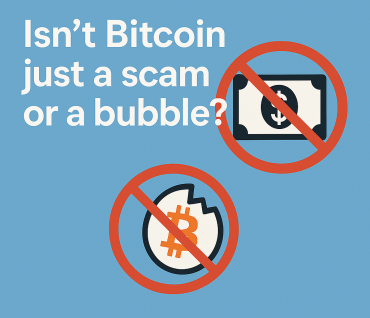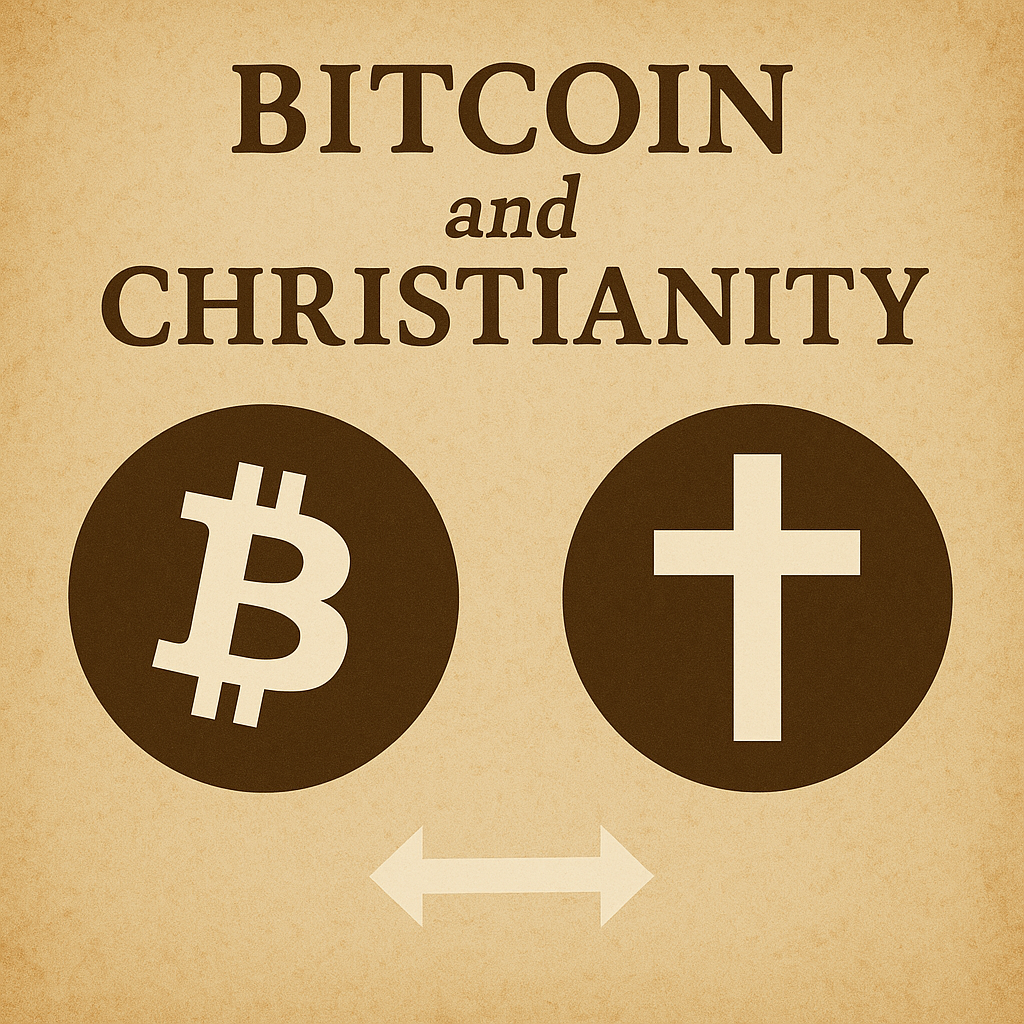
General Myths About Bitcoin
Bitcoin is a scam or bubble
Bitcoin isn’t a scam; it’s a decentralized digital currency with a fixed supply. Its value comes from scarcity and increasing global adoption, not promises of quick returns or insider schemes.

General Myths About Bitcoin
Bitcoin is too volatile
Bitcoin does experience short-term volatility, but its long-term trend shows increasing stability as adoption grows. Volatility is expected in the early stages of any asset class, especially one as revolutionary as Bitcoin.

General Myths About Bitcoin
Bitcoin is for criminals only
While Bitcoin has been used in illegal activities, the majority of Bitcoin transactions are for legal uses. Its public ledger allows for greater transparency and makes it easier to trace bad actors.

Technical & Security Myths
Bitcoin can be hacked
Bitcoin’s network is one of the most secure in the world, with never having been hacked. The decentralized nature and immense computational power make it almost impossible to compromise.

Technical & Security Myths
Bitcoin needs the internet
Bitcoin transactions can be made over satellite, mesh networks, or even radio waves. While it relies on the internet for typical use, it has built-in redundancy to function without it in certain cases.

Financial Myths
Bitcoin has no value
Bitcoin is backed by cryptography, security, and scarcity, much like gold. Its value comes from its finite supply and its ability to function as sound money, unlike fiat currency, which relies on government trust.

Financial Myths
Governments will ban Bitcoin
While governments can regulate Bitcoin, banning it outright is nearly impossible due to its decentralized nature. Many countries are already adopting clear regulations to integrate Bitcoin into their economies.

Environmental Myths
Bitcoin harms the environment
Bitcoin mining does use energy, but it incentivizes renewable energy use and captures otherwise wasted energy (e.g., flared gas). Over 50% of Bitcoin mining uses sustainable energy sources, according to industry reports.

Adoption & Usability Myths
Bitcoin is too technical
Bitcoin is becoming easier to use, with apps and services (like Cash App, Strike) making it simple for beginners to buy, store, and spend. Just like the internet, Bitcoin’s adoption will continue to simplify over time.

Bitcoin vs Gold FAQ
Is Gold Obsolete Technology?
Gold has long been a trusted store of value, but Bitcoin offers a digital alternative. As Bitcoin gains traction, many question if gold is becoming obsolete. Is Bitcoin superior? Will it replace gold? Let’s explore.

Philosophical FAQ
Parallels to Christianity?
There are some interesting philosophical and structural parallels between Bitcoin and Christianity, though they obviously differ in purpose. Here are some key comparisons:

Asset and Wealth Protection
Is Your Money Losing Value?
Bitcoin consistently outperforms major assets over longer periods (4+ years), despite short-term volatility. Long-term holding yields superior returns compared to timing the market.
Disclaimer: The information provided on this website is for educational and informational purposes only. It does not constitute financial, investment, or legal advice. Bitcoin involves risks, and you should conduct your own research or consult with a licensed financial advisor before making any financial decisions.
Tip jar:
bc1q27uvv7wnhpsexkjftkd7gu2637ykufamamfqpw
In Bitcoin of course!